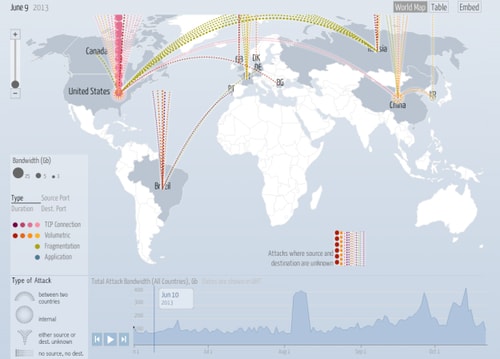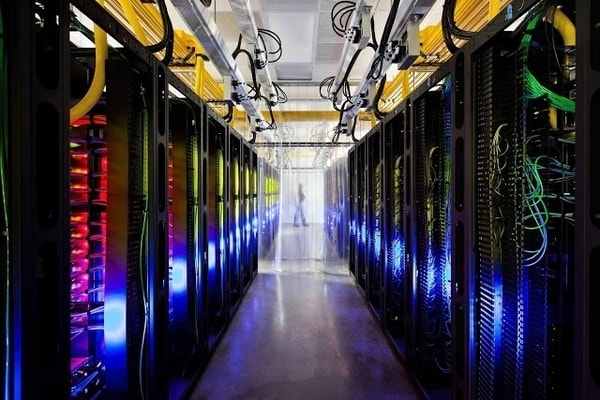
DDoS Attack Map Shows Realtime Cyber-attacks
April 2, 2014
NASA Goes Open-Source, Wants You To Build Your Own Moon Rover
April 4, 2014I applaud his gusto…
Recently on Gigaom, Peter Coffee of Salesforce.com wrote an article entitled ‘RIP, the server. It’s time to breathe the air of cloud connection’. You can read it here. As a guy who writes wordy headlines and makes sweeping generalizations about things he knows nothing about, I appreciate the effort, but if you can get past the incredibly presumptuous headline, Coffee tries to explain why servers are dead and how we should all use the cloud and worship at the altar of its cloudiness. Here’s our rebuttal to Peter Coffee’s Gigaom article on the death of the server.
Let us take a minute to acknowledge a few things: cloud isn’t going anywhere and we’re well aware it’s a viable alternative to traditional data center services and has been gaining rapidly in popularity over the recent years. Also, Peter Coffee works for Salesforce.com, which has a heavy investment in cloud related services, so he’s understandably bias, just as we are to our servers. I’m not here to weigh the advantages of dedicated servers over the cloud (although I touch on a few things), I’m here to knock the fact that ol Petey thinks the server is dead.
Here’s how Coffee starts: “Sometimes, it’s hard to tell when a novelty becomes a trend or a trend becomes the new normal. This is not one of those times. The era of the on-premise server is clearly behind us, with the cusp of change literally on our calendars.”
Right. The era of the server is clearly behind us. I guess those analysts that said that the colocation and data center industry was to grow to a $10 billion market by 2017 were completely wrong—those guys can take their “facts” and “numbers” and shove it. The cloud industry is booming, there’s no denying that (upwards of $30 billion market), but to say that a $10 billion market value is a sign of a death knell is a little absurd. He must not be good with numbers.

Coffee references Google and Amazon’s recent cloud price cuts, calling them “server-shedding”, but let’s be realistic here: if Pepsi started pricing their cans at $.79, don’t you think Coke is going to do the same thing? It’s less “let’s all enjoy the cloud” and “holy crap our competitor just dropped their prices!”
Coffee continues, “Today, running your business on private servers is on the same level of odd behavior as carrying scuba tanks to provide a private air supply. Does it give you more control of exactly what you breathe? Certainly, but can you make a business case for all that excess weight? Going forward, the notion of owning your own server farm is looking equally eccentric.”
Going to look eccentric? I guess Facebook, Google, Microsoft, IBM, LinkedIn, and almost every other big name out there continuously building and upgrading their data centers are silly idiots with figurative oxygen tanks weighing them down.
Does Peter Coffee realize that cloud computing is powered by rows and rows of servers lined up on top of and next to each other? Some would call them “farms”, even. This is the point where Coffee’s argument falls apart, because he continues on about how servers computing power is outdated and slow and blah blah blah, ignoring the fact that those same servers are powering his wonderful, beautiful cloud. It’s cloud computing software—it’s literally an application on a server inside a data center. How can you proclaim the death of the thing that the thing you’re championing relies on so heavily to exist?
Does collocating and owning server farms have its disadvantages? Apparently we’re like walking around with scuba tanks on. But the cloud has its disadvantages too—hell, Coffee mentions it up top. You lack absolute control over everything that goes on in your server with regards to your hardware, software, apps and data. Have a new piece of software or an app that you want to implement? You better be sure it’s compatible with your cloud. What happens if your cloud provider experiences an outage? What about storage space? You can have your own local server and put all your data on it (with a ton of space left to fill), access it at incredibly fast speeds and still be safe in the case of a disaster. That’s why most cloud adopters also have servers acting as backups for their cloud data. Security is a big deal when it comes to storage, and while most of the enterprise-level cloud vendors have great security protocols in place, you’re still at the mercy of the vendor and their systems rather than your own. Data caps? You betcha–remember, those guys have to cover cost, so you’ll only get some slow upload speeds. They don’t need you eating up all that bandwidth.
My favorite part of the article is this little gem, in reference to advancing technology: “We’ve even leapfrogged ourselves: as one CEO recently asked his facility manager, ‘We spent how much to put state-of-the-art Wi-Fi in this building? And I get more bandwidth on my 4G LTE smartphone?’”
That’s such an anecdotal cop out in an attempt to prove a point. Name that CEO. Do it, right now. Have him corroborate this story.
Servers are far from dead, beyond what people who sell cloud for a living are telling you. But hey, this is coming from a guy that works for a data center company, so who can you trust?
As one President recently said to his Secretary of State, “Cloud computing is a joke.”
See how easy that is?